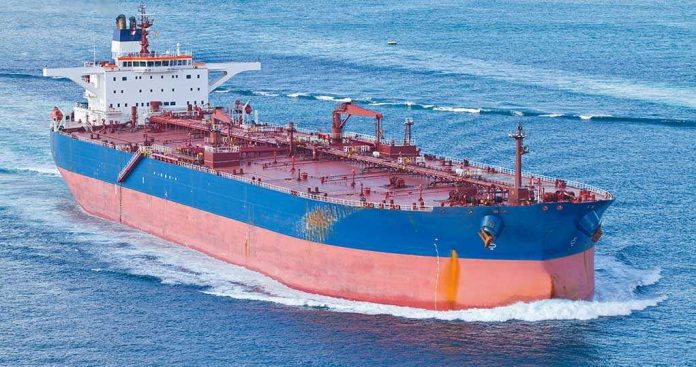
The US Treasury Department has launched a significant blow against Iran with its largest sanctions since 2018, targeting a major shipping network allegedly controlled by Mohammad Hossein Shamkhani.
Story Snapshot
- The sanctions target over 115 individuals, entities, and vessels across 17 jurisdictions.
- Mohammad Hossein Shamkhani is accused of using personal connections to generate profits for the Iranian regime.
- The move aims to disrupt Iran’s oil revenue streams amid escalating U.S.-Iran tensions.
- This is the most extensive sanctions action against Iran since 2018.
U.S. Treasury Takes Bold Action
The U.S. Treasury Department has accused Mohammad Hossein Shamkhani of orchestrating a vast shipping network, leveraging his influence and corruption in Tehran to channel tens of billions of dollars into Iran’s regime. This network has been a significant financial lifeline for Iran, primarily aimed at propping up its oil sector, which has been under U.S. scrutiny. The sanctions, announced on July 30-31, 2025, target over 115 individuals, entities, and vessels across 17 jurisdictions. This action marks the largest Iran-related sanctions since 2018, underscoring the U.S.’s commitment to cut off Iran’s oil revenue streams.
US hits Iranian shipping network with major new sanctions https://t.co/QekfBCl91e https://t.co/QekfBCl91e
— Reuters (@Reuters) July 31, 2025
The sanctions come at a time of heightened tensions between the U.S. and Iran, following a series of escalations, including the June 2025 bombing of Tehran’s nuclear sites. The U.S. has been keen on ramping up its “maximum pressure” campaign to weaken Iran’s economic capabilities, particularly those tied to oil exports. The move is designed to cripple the financial networks that Iran uses to circumvent existing sanctions, making it increasingly difficult for the regime to sustain its regional and domestic agendas.
Impact and Reactions
The immediate impact of these sanctions is expected to be a significant hurdle for Iran in exporting oil, potentially straining the regime’s finances. However, experts believe that while the sanctions are a major escalation, they may not lead to significant disruptions in global oil markets. Analysts highlight Iran’s sophisticated evasion tactics, which could evolve to counter these new measures, suggesting a continued cat-and-mouse dynamic between the U.S. and Iran.
The U.S. government, led by Deputy Treasury Secretary Michael Faulkender, has justified the sanctions by pointing to “deep corruption at the heart of the Iranian regime.” From a conservative viewpoint, this move aligns with the principles of holding corrupt regimes accountable and protecting American interests by ensuring that adversaries like Iran do not have the financial capacity to support activities contrary to U.S. values and security.
Historical Context and Stakeholders
Historically, the Shamkhani family has been a powerful player in Iran’s political and security circles, with Ali Shamkhani, Mohammad Hossein’s father, previously sanctioned by the U.S. This family’s deep ties to Iran’s Supreme Leader and control over oil export networks have made them a significant target in U.S. efforts to disrupt Iran’s economic activities. The U.S. Treasury, as the lead agency imposing these sanctions, underscores the strategic importance of dismantling networks that facilitate Iran’s oil trade.
On the international stage, the sanctions are expected to affect various stakeholders, including shipping companies and international oil buyers, notably China, which has been a major consumer of Iranian oil. The broader shipping and insurance sectors may face increased compliance burdens as they navigate the complexities of adhering to these new sanctions.
Expert Perspectives
Industry experts view these sanctions as a significant escalation in the U.S.’s efforts to cripple Iran’s oil revenue channels. Analysts emphasize the challenge the U.S. faces in fully shutting down such complex networks, given Iran’s history of adapting to sanctions. This ongoing battle reflects the persistent geopolitical tension and the strategic importance of oil in global politics.
While U.S. officials focus on the corruption within Iran’s regime, Iranian officials typically deny wrongdoing, framing these sanctions as part of a broader economic warfare strategy by the U.S. This narrative highlights the continuing ideological divide between the two nations, with each side presenting a conflicting perspective on the impact and justification of the sanctions.



